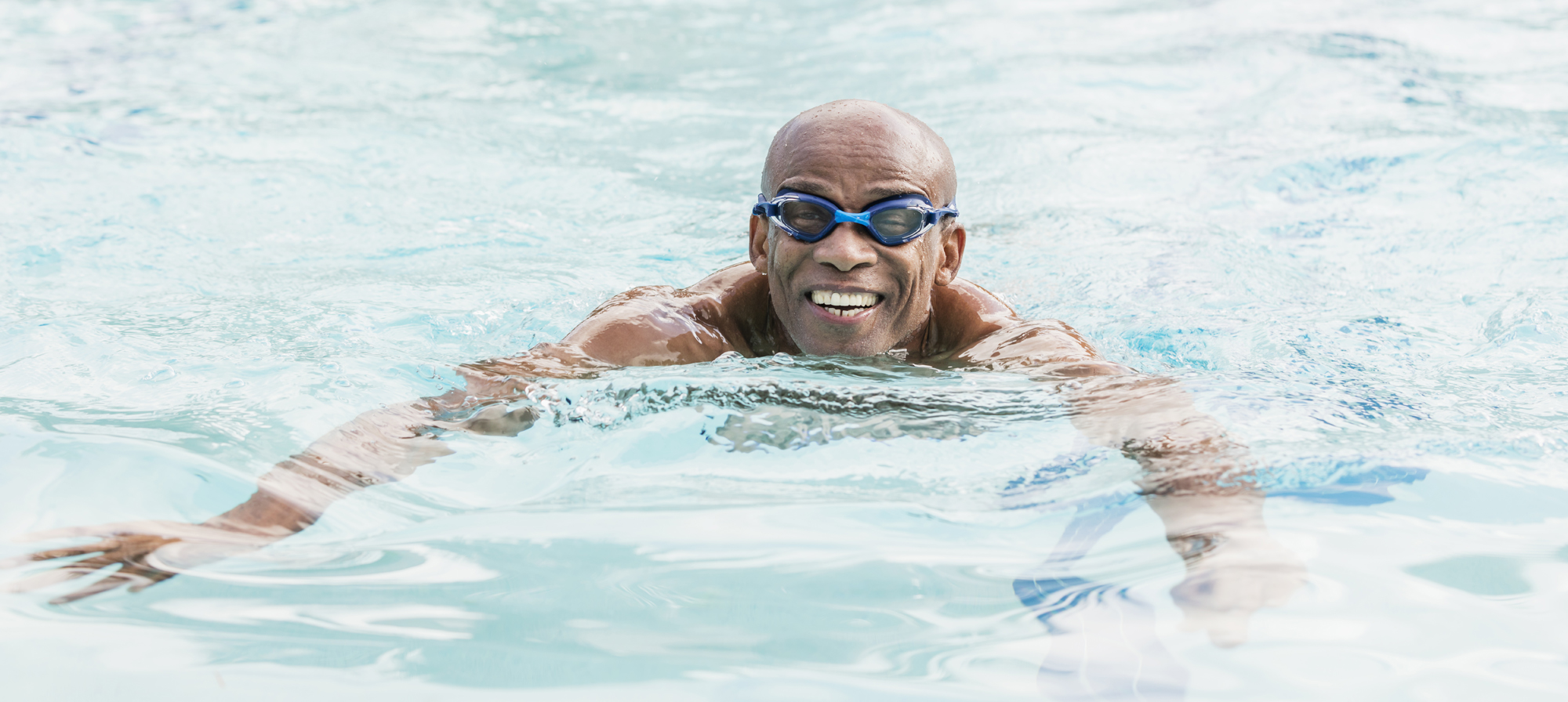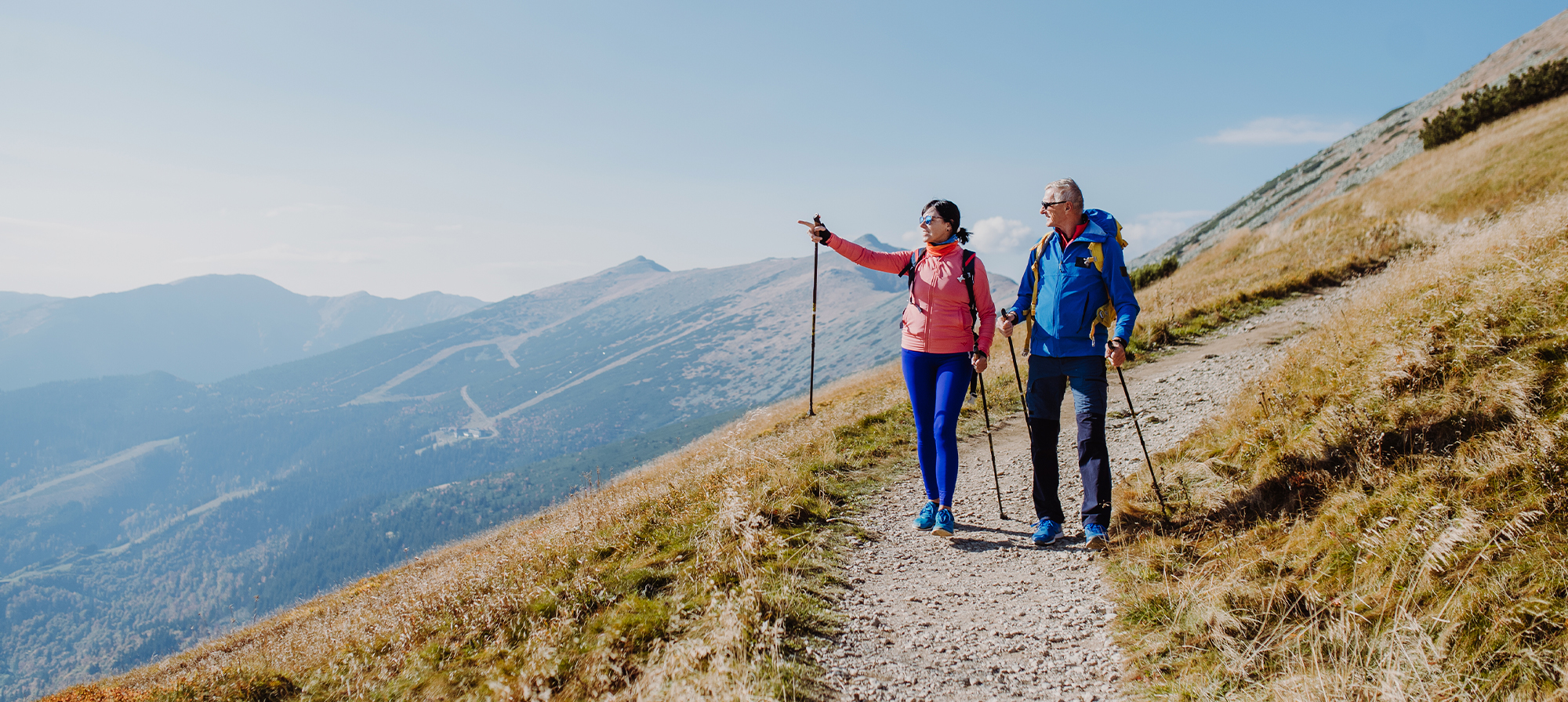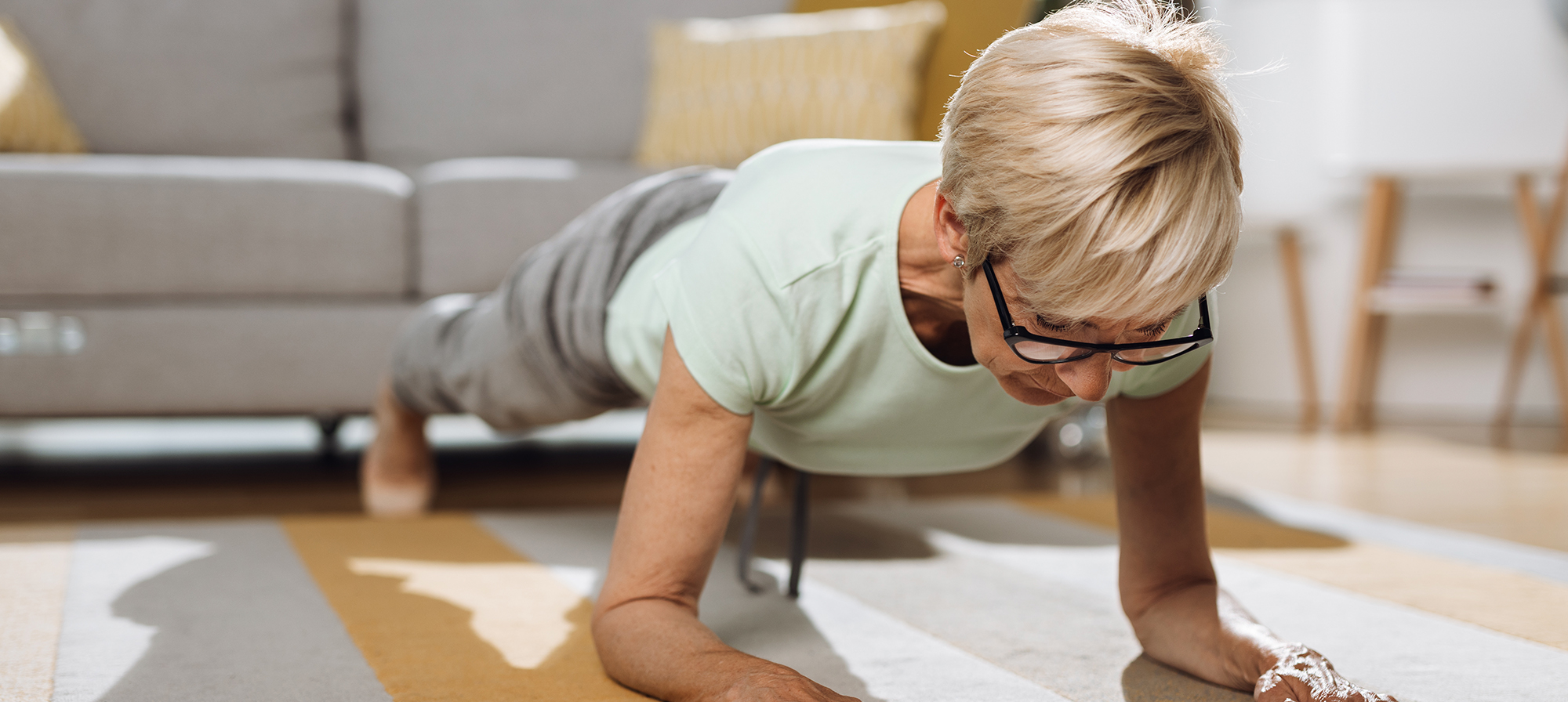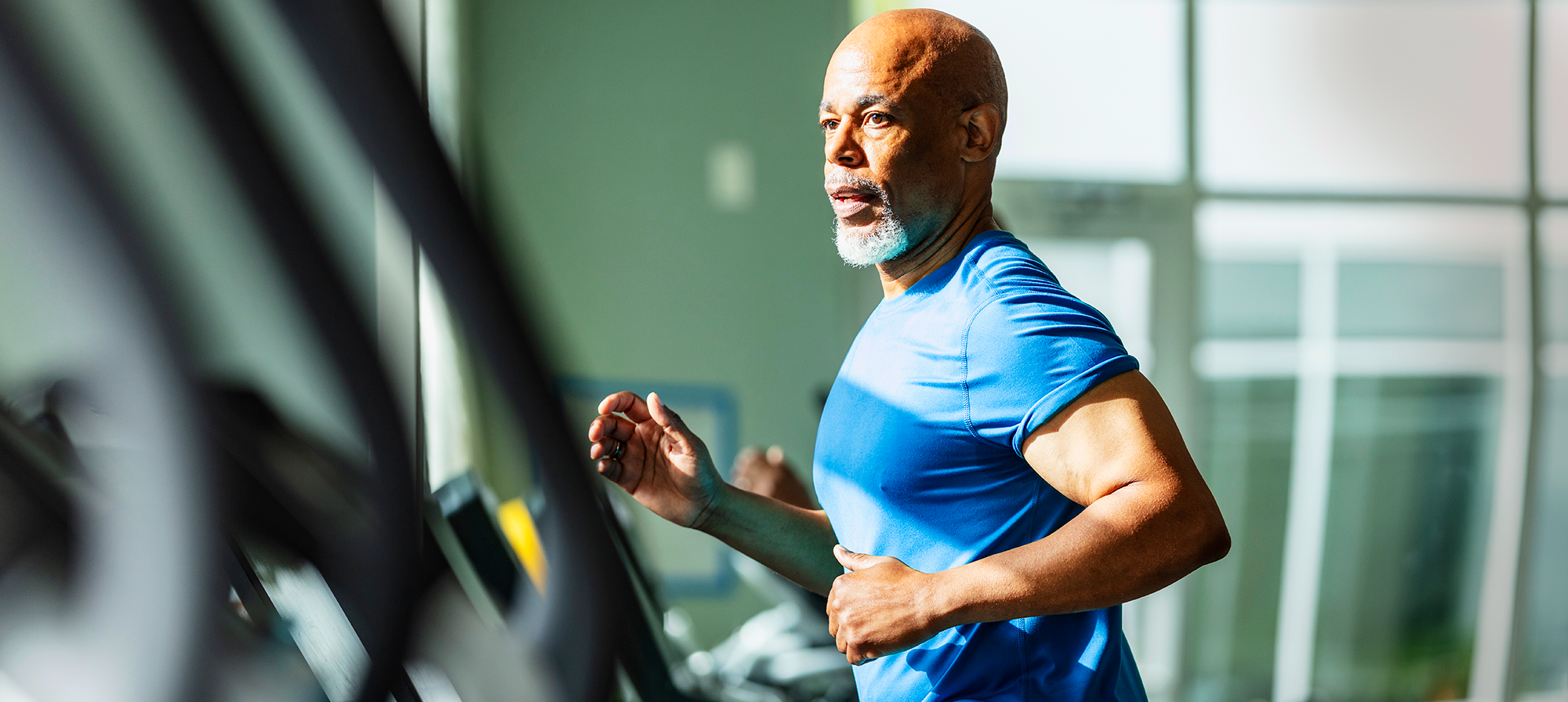Water workouts have built-in motivation. Each one offers a host of fun movements and full-body conditioning that help you get fit fast, with less wear and tear on your body.
You've known it since you were a child: Few activities are more fun and refreshing than playing in the water! But water-based exercise also offers a wealth of real fitness benefits, like greater strength, endurance, and range of motion. And water workouts can spare your body the stress of high-impact, land-based workouts. That makes water a great medium for rehabbing after an injury and for staying fit when you have arthritic joints or other types of pain. In other words, water workouts make a great fitness routine for older adults.
 What types of aquatic exercises are recommended?
What types of aquatic exercises are recommended?
Because aquatic exercise includes any kind of workout done in the water, the choices are nearly endless! Here are 4 common types of water workouts you might be interested in:
- Aquatic fitness classes. You can find classes at the YMCA, fitness clubs, or parks and recreation centers. Some classes are done in shallow water, while others take place in deeper water. Some use props such as foam noodles, webbed gloves, or foam dumbbells. Others can be done without any special equipment.
You can sign up for water walking or water running classes. Some places offer water-based cycling classes. Aqua aerobics and other cardio classes are also great choices. Water-based dance classes are also a fun way to work out in the pool. There are classes that focus on strength and core work. There are even water-based classes for yoga, tai chi, Pilates, barre, and stretching. With all these choices, you can tailor a fully water-based exercise routine to your liking. Or you can mix water workouts with your land-based workouts. - Swimming. You might also enjoy swimming laps in a pool or out in the open water. Swimming is a great total-body workout. It helps build muscle strength and endurance. And it’s a great cardio workout that helps boost heart health and burn calories. The rhythmic, repetitive nature of swimming can also help ease stress and trigger a calm, relaxed state of mind.
If you’ve never learned to swim or are not a strong swimmer, think about taking a swim class. The YMCA and Red Cross both offer adult swim classes. Swim classes teach you to safely enter the water, resurface, tread, float, turn, control your breathing, and swim several yards. They also teach you tips to help you stay safe in and around the water. - Aqua therapy. Some health care providers and fitness centers offer aqua therapy classes or programs. This is a great choice if you are rehabbing an injury or dealing with a health condition, pain, or a disability. Classes help rebuild strength in weak muscles, increase joint flexibility, and boost endurance. Some have laminated workout sheets so you can do the exercises on your own, as well. Your doctor or a physical therapist may also be able to give you exercises to do in a pool if you’d rather work out on your own.
- Water sports. If you’re feeling more adventurous, think about taking up a water sport. You might try snorkeling, body or board surfing, scuba-diving, waterskiing, or stand-up paddleboarding. Many parks and recreation centers offer classes in these types of water sports. Just make sure you’re a strong swimmer first.
 What are the benefits of aquatic exercise?
What are the benefits of aquatic exercise?
Because water supports your body weight, aquatic exercise puts less pressure on your joints. So, mixing your land-based workouts with water workouts now and then may help with joint health over time. And water workouts make a great choice if you have balance problems, joint pain, and/or an increased risk of falling.
Exercising in water may:
- Protect your joints from wear and tear
- Lessen pain and stiffness
- Boost range of motion
Like land-based workouts, water workouts boost your health and fitness, too. They offer a total-body workout that can help:
- Strengthen your heart
- Strengthen your muscles
- Improve endurance and lung function
- Improve blood flow
- Burn calories so you can lose weight or maintain a healthy weight
- Lower your chances of heart disease, high blood pressure, and diabetes
Aquatic exercise can offer mental and emotional benefits, too. Water workouts can help:
- Lower stress
- Boost mood
- Lessen anxiety and depression
- Boost energy
- Improve sleep
 Why is aquatic exercise a great type of workout for seniors?
Why is aquatic exercise a great type of workout for seniors?
If you have a health condition, water workouts might be right for you. Studies suggest that swimming and other aquatic workouts help with some of the health problems that are more common in older adults, such as:
- Arthritis. As mentioned, moving in the water can be easier on your joints than land-based workouts. This is because weight-bearing exercise done on land (like walking, running, or jumping) can cause discomfort for people with arthritis.
- Heart disease. Research suggests that aquatic workouts can help boost blood flow. They may also help lower blood pressure and cholesterol for people with heart disease. And they help make the heart stronger.
- Diabetes. Like other types of exercise, aquatic workouts may help control blood sugar levels. And for those dealing with diabetic neuropathy, emerging research suggests that working out in water may be more comfortable and may help to improve balance and gait.
- Mental health. Research has shown that aquatic exercise can improve your mood and mental health. While all types of exercise can boost your mood, many people find that working out in water is even more uplifting. And the social aspect of the group aquatic classes is a bonus.
 How can you get started with aquatic exercise?
How can you get started with aquatic exercise?
Most water workouts are done in a public or home swimming pool. You can find pools at some gyms or parks and recreation facilities. You will likely have to join as a member to be able to use the pool. Be sure that any pool you use is at least 3 feet deep. And it should be large enough for you to move around in without touching any walls, ladders, or ropes.
Some water workouts, like swimming and water sports, can be done in open water, like a lake or an ocean near you. If you’re interested in water sports, check to see if there are rental services where you can rent the gear you need. You may also want to take lessons or sign up for guided excursions or tours. That way, you can learn the ropes from an expert and stay safe. And if you’re interested in swimming, make sure you’re a strong swimmer if you’re swimming in open water.
Whichever water workout you try, make sure you never work out in the water alone, even if you’re a strong swimmer. Public beaches and pools often have lifeguards on duty at certain times. If you’re doing aquatic fitness classes, the instructor will be there, along with other people who are taking the class. You can also work out in the water with a buddy or group of friends, which is not only safer, but also more fun.
Doing aquatic exercise doesn’t mean you have to give up land-based workouts altogether. But having a water-based alternative can help you stay active even when you’re:
- Dealing with joint pain and stiffness
- Worried about injuries or recovering from one
- Rehabbing after surgery (check with your surgeon first)
- Feeling unsteady on your feet
- Experiencing neuropathy
Plus, since many water workouts can be done in an indoor pool, they offer a great way to stay fit year-round. You can side-step the risks posed by the weather—rain, snow, ice, and heat. Of course, if you'd rather work out in open water or an outdoor pool, water workouts are perfect when the weather is warm.
As exercises for older adults go, water-based fitness is second to none. So, switch up your ground-based fitness routine and dive into the water for some refreshing, aquatic workouts. You may find you look forward to your workouts more. That's a great way to boost your motivation too! Check out these tips to improve your workout motivation.
Not a Silver&Fit® member? Learn more about everything the program has to offer, including more helpful healthy living tips like this, here on our website.
This information is not intended to take the place of regular medical care or advice. Please check with your doctor before using this information or beginning any self-care program. Images used for this article do not depict any members of the Silver&Fit program.
References
Adsett, J. A., Mudge, A. M., Morris, N., Kuys, S., & Paratz, J. D. (2015, March 10). Aquatic exercise training and stable heart failure: A systematic review and meta-analysis. International Journal of Cardiology, 186, 22-28. https://doi.org/10.1016/j.ijcard.2015.03.095
Aquatic Exercise Association. (n.d.). Sample aquatic fitness class names and descriptions. https://aeawave.org/Portals/0/Useful_Docs/SampleClassNamesDescriptions.pdf?ver=2019-03-25-081906-957
Bartels, E. M., Juhl, C. B., Christensen, R., Hagen, K. B., Danneskiold-Samsoe, B., Dagfinrud, H., & Lund, H. (2016, March 23). Aquatic exercise for the treatment of knee and hip osteoarthritis. Cochrane Database of Systematic Reviews, 3, CD005523. https://doi.org/10.1002/14651858.CD005523.pub3
Buitrago-Restrepo, C. M., Patiño-Villada, F. A., & Arango-Paternina, C. M. (2024). Effects of aquatic exercise on physical performance in older adults: A systematic review and meta-analysis. Journal of Aging and Physical Activity, 32(5), 651–667. https://doi.org/10.1123/japa.2023-0192
Centers for Disease Control and Prevention. (2024, May 8). Swimming and your health. https://www.cdc.gov/healthy-swimming/about/index.htmlDalamitros, A. A., Toupektsi, E., Alexiou, P., Nousiou, S., Clemente-Suarez, V. J., Tornero-Aguilera, J. F., & Tsalis, G. (2024). The effectiveness of water- versus land-based exercise on specific measures of physical fitness in healthy older adults: An integrative review. Healthcare (Basel, Switzerland), 12(2), 221. https://doi.org/10.3390/healthcare12020221
Delevatti, R. S., Kanitz, A. C., Alberton, C. L., Marson, E. C., Lisboa, S. C., Pinho, C. D., Lovatel, G. A., Korb, A., Bertoldi, K., Macedo, R. C., Siqueira, I. R., Schaan, B. D., & Kruel, L. F. (2016, August). Glucose control can be similarly improved after aquatic or dry-land aerobic training in patients with type 2 diabetes: A randomized clinical trial. Journal of Science and Medicine in Sport, 19(8), 688-693. https://doi.org/10.1016/j.jsams.2015.10.008
Deng, Y., Tang, Z., Yang, Z., Chai, Q., Lu, W., Cai, Y., Luo, Y., & Zhou, Y. (2024). Comparing the effects of aquatic-based exercise and land-based exercise on balance in older adults: a systematic review and meta-analysis. European review of aging and physical activity: official journal of the European Group for Research into Elderly and Physical Activity, 21(1), 13. https://doi.org/10.1186/s11556-024-00349-4
Fernandes, G., Jennings, F., Nery Cabral, M. V., Pirozzi Buosi, A. L., & Natour, J. (2016, August 1). Swimming improves pain and functional capacity of patients with fibromyalgia: A randomized controlled trial. Archives of Physical Medicine and Rehabilitation, 97(8), 1269-1275. https://doi.org/10.1016/j.apmr.2016.01.026
Harper, J. (2012). Masters swimming 101: What are the basics of pool etiquette? United States Masters Swimming. https://www.usms.org/fitness-and-training/articles-and-videos/articles/masters-swimming-101-what-are-the-basics-of-pool-etiquette?Oldid=1926
Klonizakis, M., Hunt, B. E., & Woodward, A. (2020, November 13). The association between cardiovascular function, measured as FMD and CVC, and long-term aquatic exercise in older adults (ACELA Study): A cross-sectional study. Frontiers in Physiology, 11, 603435. https://doi.org/10.3389/fphys.2020.603435
Kravitz, L. & Mayo, J. J. (n.d.) The physiological effects of aquatic exercise. The University of New Mexico. http://www.unm.edu/~lkravitz/Article%20folder/aqua.html
Mayo Clinic. (2019, October 15). Slide show: Aquatic exercises. https://www.mayoclinic.org/healthy-lifestyle/fitness/multimedia/aquatic-exercise/sls-20076730
Somalya, K. J., Samal, S., & Boob, M. A. (2024, March 24). Physiotherapeutic intervention techniques for knee osteoarthritis: A systematic review. Cureus, 16(3):e56817. doi:10.7759/cureus.56817
Swim.org. (n.d.). 8 benefits of swimming whatever your fitness level. https://www.swimming.org/justswim/8-benefits-of-swimming/
The American Red Cross. (n.d.). Swim lessons for adults. https://www.redcross.org/take-a-class/swimming/swim-lessons/adult-swim-lessons
United States National Library of Medicine, United States Department of Health and Human Services, & National Institutes of Health. (2016, December 28). Water safety (recreational). https://medlineplus.gov/watersafetyrecreational.html
Wang, T., Wang, J., Chen, Y., Ruan, Y., & Dai, S. (2023). Efficacy of aquatic exercise in chronic musculoskeletal disorders: a systematic review and meta-analysis of randomized controlled trials. Journal of Orthopaedic Surgery and Research, 18(1), 942. https://doi.org/10.1186/s13018-023-04417-w
YMCA of Central New York. (n.d.). Aquatic fitness classes. https://ymcacny.org/programs/healthy-living/fitness/adult-aquatics/aquatic-fitness-classes
Zivi, I., Maffia, S., Ferrari, V., Zarucchi, A., Molatore, K., Maestri, R., & Frazzitta, G. (2018, May). Effectiveness of aquatic versus land physiotherapy in the treatment of peripheral neuropathies: A randomized controlled trial. Clinical Rehabilitation, 32(5), 663-670. https://doi.org/10.1177/0269215517746716
This article was written by Nora Byrne, edited by Gail Olson, and clinically reviewed by Jossue Ortiz, DC. Last reviewed by Jaynie Bjornaraa, PhD, MPH, PT, SCS, LAT, ATC, CSCS, CSPS, on November 23, 2024.





